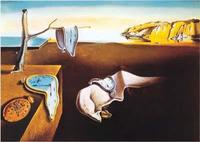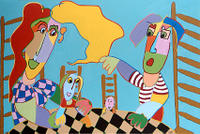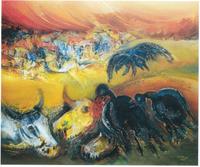
Belief of God.....before writing more about it, we should first ponder the concept of God. Which concept of God? God of Christianity? God of Judaism? God of Islam? God of Hinduism? God of Tibetian Buddhism? God of Shinto? God of Baha’i? God of nature? God of some of African/Chinese traditional religions? Gods of Vikings? Gods of Egyptians? Tao of Taoism?
There are a lot more general concepts of Gods out there and individual view of God, even inside same religion, is different in each believer. Even in those few religions where originally there was no God, followers have created targets to worship.
So let’s get personal here. Do I believe in God and if I do, what is my view of God? Well, first of all I would say that all the main religions seem more or less same to me. Same message, same essence but the words used to describe it differ based on existed conditions, culture, language and other things. And around that essence people have created different religions by adding lots of stuff which has just created huge deal of confusion, wars and separation from the world. God is not found from religions. The way I see God is that everything is one. There’s no separation between anything. And that wholeness, if you want, can be called as God. This God is everything - not some individual force of power with own will. So in a way we are all ”God”, drops of ocean – sometimes ocean itself. This view of God is not really a belief since there’s nothing to believe in that – nothing supernatural or beyond understanding. Term ”God” can be dropped anytime.
Followers of different religions use God as a tool. It eases the mind very much when one can pray to God, worship God, love & feel loved by God, trust in God, feel safe with God and so on. Even though belief is always targeted into concept, not into real thing – placebo works. That placebo is same kind of substitute as other substitutes mentioned in earlier subjects. Concepts of God are also used to control people: ”God would want you to do this, to be like this” and as a carrot there’s usually some reward waiting, like getting into paradise and on the other side there can be a fear of punishment, like hell.
People have huge interest of finding external God while if they had same interest of finding who they are, they would end up seeing God - not the concept. Buddha was often asked about questions like whether there was a God or life after death or who created the world and so on. Usually he refused to answer to such questions as he saw that it was just an attempt to seek substitutes. The following story is classic example about that:
To a follower who insisted on knowing, "Is there a God?", Buddha replied with the parable of the poison arrow. "if you were shot by a poison arrow, and a doctor was summoned to extract it, what would you do? Would you ask such questions as who shot the arrow, from which tribe did he come, who made the arrow, who made the poison, etc., or would you have the doctor immediately pull out the arrow?"
"Of course," replied the man, "I would have the arrow pulled out as quickly as possible." The Buddha concluded, "That is wise O disciple, for the task before us is the solving of life's problems; when that is done, you may still ask the questions you put before me, if you so desire."



















